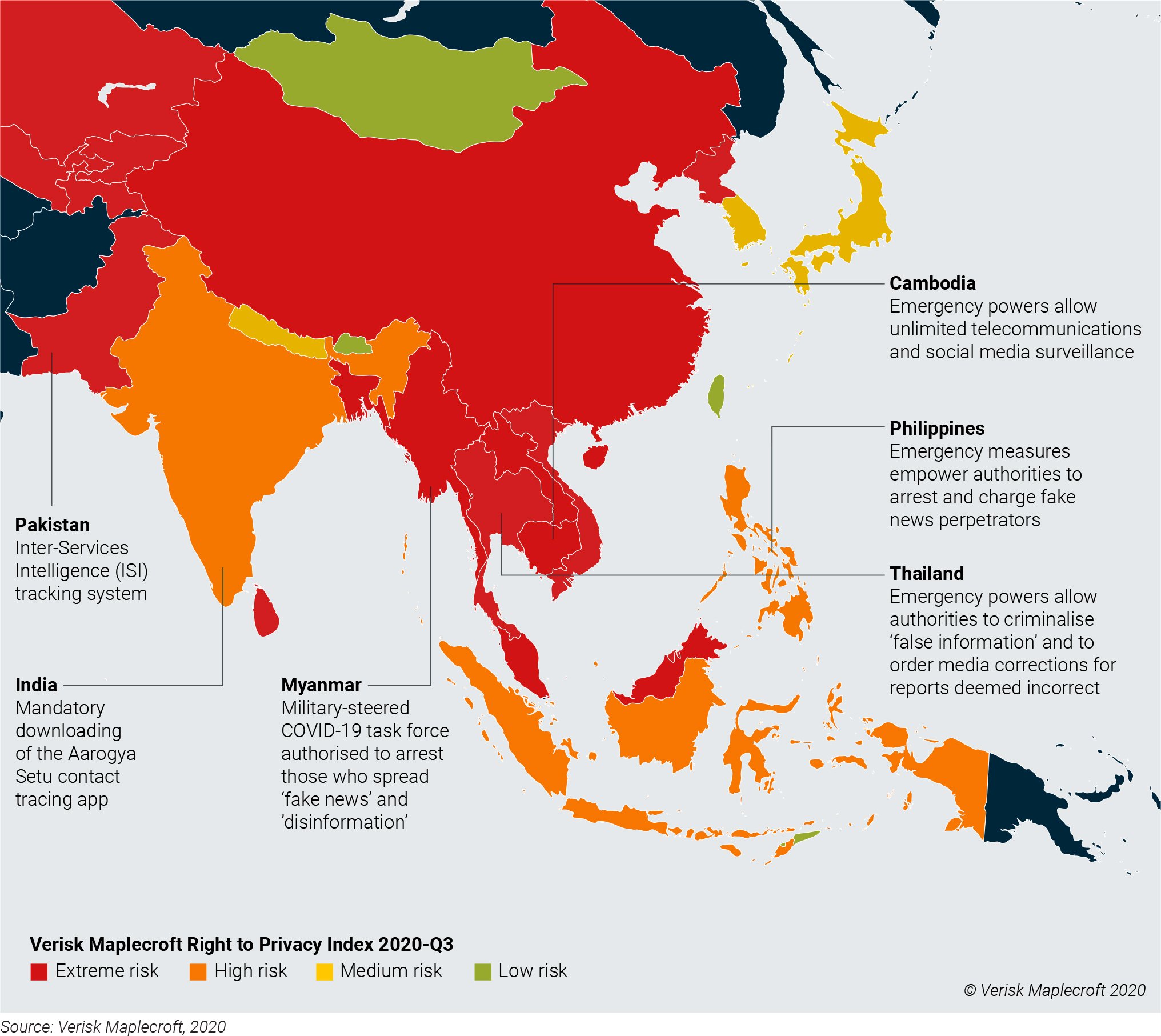Amid COVID-19, Pakistan India and China to become “world’s surveillance hotspot”, warns report
- According to a new Right to Privacy Index report, “China and Pakistan are among the nations with a worsening track record of violating citizens privacy”, with Asia being one of the highest-risk regions in the world for breaches of privacy, surveillance, and curbing political liberties.
In the midst of a global pandemic, which has stretched the mechanisms of governance and public healthcare on a global scale, state surveillance - which was previously confined to a controlled role for monitoring an array of potential security threats - was used extensively to monitor public activity through a “track and trace” strategy, to contain the spread of the virus, even after the health crisis recedes.
During this pandemic, individuals across the globe have compromised on elements of their privacy and physical mobility, in an effort to comply with government regulations to curb this contagion - and while these were unprecedented times, there is a significant threat that these tools of mass-surveillance will continually be in use, with little checks and balances, especially in countries with weak digital security laws. Questions and concerns pertaining to the governance of online spaces are likely to resurface.
According to a new Right to Privacy Index report by the U.K based organization Verisk Maplecroft, with aggregated information from a sample of 198 countries, “China and Pakistan are among the nations with a worsening track record of violating citizens privacy”, Asia being one of the highest-risk regions in the world for breaches of privacy, surveillance, and curbing political liberties - with Pakistan ranking 4th (behind North Korea), and China at 14th. The report highlights that “Asia is now the highest risk region in the Right to Privacy and Freedom of Opinion and Expression indices”, and with the score steadily worsening over the past four years, it can be anticipated that the region will become “the world’s surveillance hotspot”, as unchecked and extreme mitigations of digital rights will become “a permanent fixture of state governance”.

Pakistan, at the apex of this crisis, adopted a comprehensive “track and trace” strategy to monitor coronavirus patients, with tools that have been routinely used by the country’s intelligence agencies to track militants and terrorist groups, in the absence of any significant data protection and privacy laws, and a waning discourse on the notion of the effective (and non-intrusive) governance of digital spaces. Even in India, Pakistan’s immediate neighbour, the government issued compulsory requirements for both public and private employees to download a government virus tracking application, which the report cites as a significant warning and a bad precedent for businesses across Asia. The report also cited the Chinese government’s decision to make a coronavirus tracking application permanently mandatory, which is entirely reflective of the pandemic not only influencing policy measures, but also forcefully renegotiating certain individual liberties.
As surveillance measures will continue to intensify in the region, even while the virus could potentially recoil, there is a significant risk that governments with untethered access to personal sensitive information, could lead to authorities exploiting such data to silence dissenting voices and curtail political opposition.
























Comments
Comments are closed.